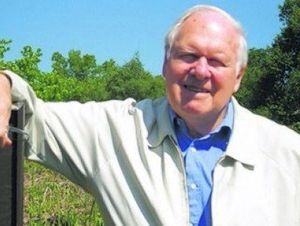One of the great texts of the Bible is where Paul declares: ‘It is because of him that you are in Christ Jesus, who has become for us wisdom from God – that is, our righteousness, holiness and redemption’ (1 Corinthians 1:30).
When all the wisdom of the Greek philosophers failed to find a solution for the plight of mankind lost in sin, God the Father provided the answer. The solution was vested in one person, perfectly equipped to achieve salvation for sinners.
Full salvation
In the Son of God, there is provided a complete salvation; and this is displayed in the three words describing what is given to believers, namely, righteousness, holiness and redemption.
We know from Paul’s letters to the Romans and Galatians that righteousness is the sum of Christ’s active and passive obedience as man. The righteousness, which is the result of his perfect work as mediator for us, is imputed to every one who is in union with him by faith.
Holiness, without which no one can see God (Hebrews 12:14), is also provided. This comes through the indwelling work of the Holy Spirit in the hearts of believers. Holiness here refers to progressive sanctification, begun when a soul is born again and completed in the resurrection.
But what does ‘redemption’ mean? The root meaning of the word (Greek: apolutrōsis) takes us to the market place, where slaves were bought and sold. The picture is of slaves waiting to be purchased, held in captivity.
‘Redemption is the deliverance of any one from bondage or captivity, and the misery attending that condition, by the intervention of interposition of a price or ransom’ (John Owen, Works, vol. 12, p.509).
Costly purchase
We were hopelessly lost in sin, serving Satan as his slaves, until Christ came and bought us out of that slave market. ‘For even the Son of Man did not come to be served, but to serve, and to give his life as a ransom [lutron] for many’ (Mark 10:45).
This purchase was not an easy one. The sacrifice made by Christ was an atonement that satisfied the justice of God and propitiated the wrath of God against our sins.
The immensity of that achievement is stupendous. The popular film The lion, the witch and the wardrobe vividly depicts such elements as the atonement and the resurrection. The resurrection of Aslan is inspiring, but where this story is out of line with the Bible is where Aslan is required to satisfy the accusations (demands) of the witch (the devil).
Jesus came to destroy the works of the devil (1 John 3:8), not to render satisfaction to him. Christ’s death was all about satisfying the demands of the Father. If you struggle with that, then read and reflect on the words of Jesus in Gethsemane: ‘Yet not my will, but yours be done’ (Luke 22:42; Isaiah 53:10).
The part played by Satan was to hurl everything diabolical against the Son of God (vividly depicted in the film). But penal substitution means that Christ stood in the place of his people and bore what God’s holiness and justice demands because of our iniquities. Christ has secured an eternal redemption for us (Hebrews 9:12).
‘Redemption’ means we have been bought with the precious blood of Christ (Ephesians 1:7). We are bought by him completely, so that we are delivered totally from the dire effects of sin.
Complete deliverance
In the resurrection day, the ransomed will be given glorified, perfect bodies. They will be retrieved from the presence and power of sin. Redemption means complete deliverance, with the possession of a resurrection body and eternal life.
All this has been procured for us by Christ. ‘It is because of the Father that you are in Christ Jesus, who has become for us wisdom from God – that is, our righteousness, holiness and redemption’. Nothing has been overlooked. Everything has been taken care of.
What is your response? If you are a disciple of Christ, then you will extol the grace of our triune God. Redemption is ‘to the praise of the glory of his grace’ (Ephesians 1:6).
Erroll Hulse
The author is associate pastor at Leeds Reformed Baptist Church, UK. He is editor of Reformation Today and helps spearhead pastors’ conferences for southern Africa. His latest book is The doctrine and practice of holiness (EP Books).




